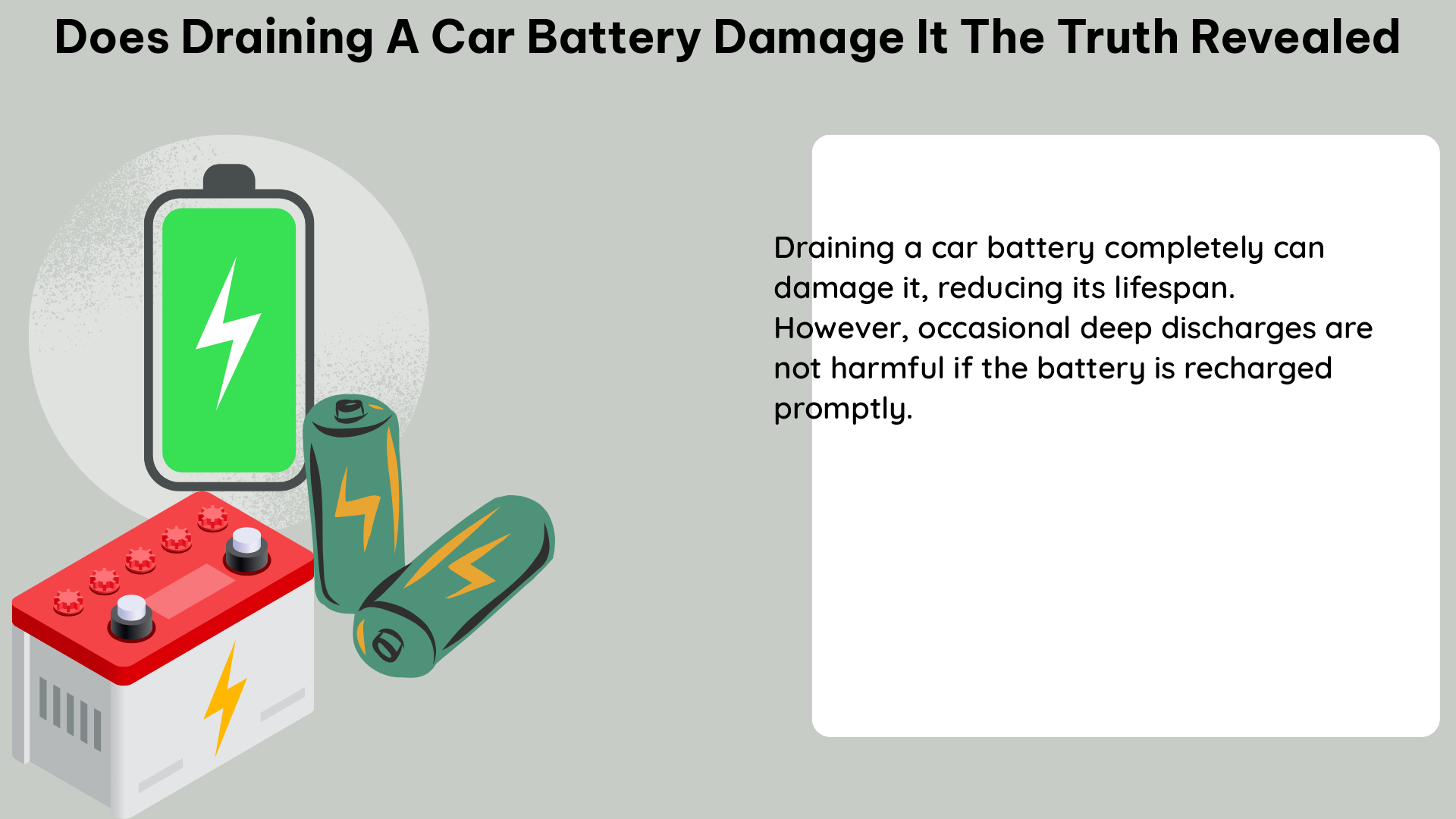Draining a car battery can have significant consequences, and understanding the impact is crucial for maintaining the health and longevity of your vehicle’s electrical system. In this comprehensive guide, we’ll delve into the truth about whether draining a car battery can cause damage, and explore the various factors that influence the extent of the damage.
Understanding the Consequences of Draining a Car Battery
When a car battery is completely drained, it can suffer from several types of damage, depending on the duration and frequency of the drain. Here’s a closer look at the potential consequences:
Sulfation
One of the primary issues that can arise from a drained car battery is sulfation. This occurs when the lead-acid battery’s plates become coated with lead sulfate crystals, which can reduce the battery’s capacity and make it more difficult to recharge. Prolonged or repeated draining can accelerate the sulfation process, ultimately leading to a shorter battery lifespan.
Plate Damage
Draining a car battery can also cause physical damage to the battery’s internal plates. When a battery is completely discharged, the chemical reactions within the cells can cause the plates to become distorted or even break down. This damage can be irreversible and may require the replacement of the entire battery.
Reduced Capacity
Even if a drained car battery can be successfully recharged, it may not regain its full capacity. The repeated stress of being drained and recharged can gradually reduce the battery’s overall capacity, making it less able to hold a charge and provide the necessary power to start the vehicle.
Corrosion
Draining a car battery can also lead to increased corrosion of the battery’s internal components, such as the terminals and connectors. This corrosion can impede the flow of electrical current and further contribute to the battery’s degradation.
Factors Influencing the Extent of Damage

The degree of damage caused by draining a car battery can vary depending on several factors:
Battery Age and Condition
Older batteries or those that are already in poor condition are more susceptible to damage from draining. The battery’s overall health and remaining lifespan play a significant role in how well it can withstand the stress of being drained and recharged.
Depth of Discharge
The deeper the battery is drained, the more severe the potential damage. A battery that is only partially drained is less likely to suffer significant harm compared to one that is completely discharged.
Recharging Method
The way the battery is recharged after being drained can also impact the extent of the damage. Slow, controlled charging is generally better for the battery than rapid, high-current charging, which can further stress the battery’s internal components.
Frequency of Draining
Repeated or frequent draining of a car battery can compound the damage over time. Batteries that are consistently drained and recharged are more likely to experience accelerated degradation compared to those that are only occasionally drained.
Preventing and Mitigating Damage
To minimize the risk of damage to your car battery, it’s essential to take proactive measures:
-
Avoid Unnecessary Draining: Be mindful of leaving electrical accessories or lights on when the engine is not running, as this can gradually drain the battery.
-
Regularly Check and Maintain the Battery: Regularly inspect your car’s battery for signs of corrosion or other issues, and consider replacing it if it’s nearing the end of its lifespan.
-
Recharge Promptly: If your car battery does become drained, recharge it as soon as possible using a slow, controlled charging method. Avoid rapid, high-current charging, as this can further stress the battery.
-
Consider Battery Maintenance Charging: Investing in a battery maintenance charger can help keep your car’s battery in optimal condition, even during periods of inactivity.
-
Replace Damaged Batteries: If your car battery has suffered significant damage from repeated draining, it’s best to replace it rather than attempting to revive it. Continuing to use a severely damaged battery can lead to further issues and potentially cause harm to your vehicle’s electrical system.
Conclusion
Draining a car battery can indeed cause damage, but the extent of that damage depends on various factors. By understanding the potential consequences and taking proactive measures to prevent and mitigate battery drain, you can help ensure the longevity and reliability of your vehicle’s electrical system. Remember, regular maintenance and prompt action when a battery is drained can go a long way in preserving the health of your car’s battery and avoiding costly replacements.
Reference:
- Car Battery Completely Drained – Too Late to Save?
- Replace or Recharge a Battery After is Has Been Drained
- Idiots Guide: Tracing Parasitic Battery Drain in Modern Cars

The lambdageeks.com Core SME Team is a group of experienced subject matter experts from diverse scientific and technical fields including Physics, Chemistry, Technology,Electronics & Electrical Engineering, Automotive, Mechanical Engineering. Our team collaborates to create high-quality, well-researched articles on a wide range of science and technology topics for the lambdageeks.com website.
All Our Senior SME are having more than 7 Years of experience in the respective fields . They are either Working Industry Professionals or assocaited With different Universities. Refer Our Authors Page to get to know About our Core SMEs.